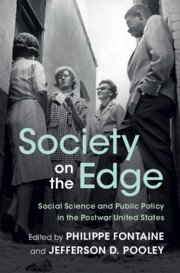10 - War
Published online by Cambridge University Press: 28 November 2020
Summary
Chapter 10 describes the curious case of the social science of war, which shed its social problem framing in the early postwar era. From the interwar years through to the late 1940s, war was a public-facing problem whose solution-the eradication of armed conflict-seemed within reach for many social scientists and their internationalist allies. Quincy Wright's magisterial and multi-disciplinary 1942 A Study of War exemplified the social-scientific ambition to foster peace through an expert-guided world order. The Cold War, however, abruptly stalled war's brief career as a social problem. The Soviet threat, and the national security state erected in response, helped to reframe the social science of war in management terms. For the next two decades most social scientists of war-though split on methodology and approach-hitched their study to the Cold War struggle. By the late 1960s the Vietnam debacle had implicated Defense-sponsored work on counter-insurgency and psychological warfare, leading to a public backslash against military entanglements. Many social scientists abandoned the study of war in Vietnam's wake, ceding the domain to political science in general and international relations in particular. The result was a social science of war that remained, into the 1980s, centered on statecraft and security.
Keywords
- Type
- Chapter
- Information
- Society on the EdgeSocial Science and Public Policy in the Postwar United States, pp. 358 - 385Publisher: Cambridge University PressPrint publication year: 2020

